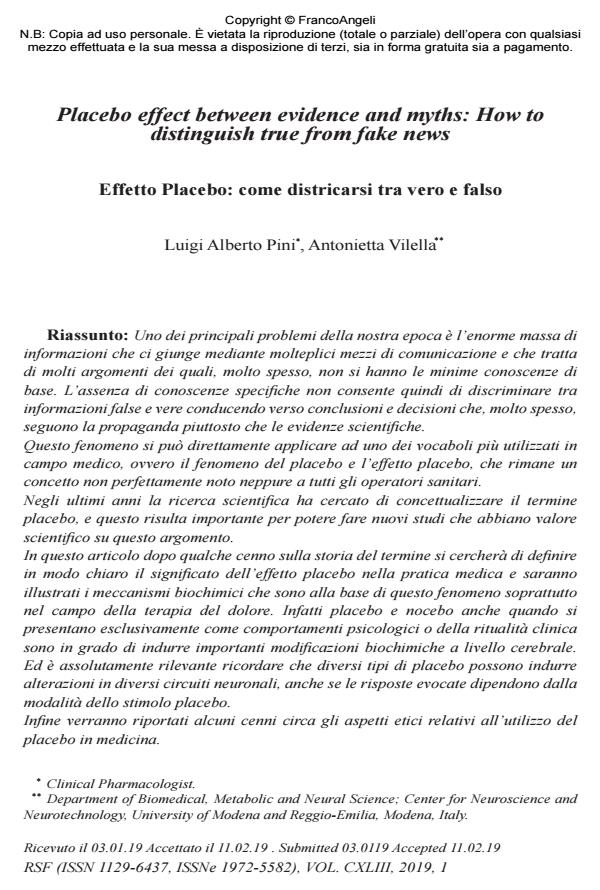Effetto Placebo: come districarsi tra vero e falso
Journal title RIVISTA SPERIMENTALE DI FRENIATRIA
Author/s Luigi Alberto Pini, Antonietta Vilella
Publishing Year 2019 Issue 2019/1
Language English Pages 16 P. 131-146 File size 1831 KB
DOI 10.3280/RSF2019-001009
DOI is like a bar code for intellectual property: to have more infomation
click here
Below, you can see the article first page
If you want to buy this article in PDF format, you can do it, following the instructions to buy download credits

FrancoAngeli is member of Publishers International Linking Association, Inc (PILA), a not-for-profit association which run the CrossRef service enabling links to and from online scholarly content.
One of the main problems in the present age is the enormous amount of information we have access to in every instant involving all types of questions, without having any direct experience on the topic. Therefore, in order to make appropriate choices it is important to discriminate between fake or scientifically proven news. This problem also applies to some of the most used words in medicine: placebo and placebo effect, which are not always fully understood by health professionals. In the past years a modern interpretation of placebo and its effects has become evident. This new interpretation is also important in order to make progress in the study of placebo. This mini-review will address the meaning and the use of the placebo effect in medical practice, and will deal with the biochemical mechanisms underlying the phenomenon mainly in the field of analgesia and pain perception. In fact, the placebo and nocebo effects, even when seen as psychological or ritual aspects of the therapeutic act, may change the biochemistry and the neuronal circuitry of the brain. Moreover, the mechanisms activated by placebos and nocebo have been found to be similar and often the same as those activated by drugs, whereas research has identified many types of responses emerging from different types of placebo. Finally, ethical problems arising from the use of placebo in medicine will be mentioned.
Keywords: Placebo, nocebo, fake news, myths, scientific evidence
Luigi Alberto Pini, Antonietta Vilella, Placebo effect between evidence and myths: How to distinguish true from fake news in "RIVISTA SPERIMENTALE DI FRENIATRIA" 1/2019, pp 131-146, DOI: 10.3280/RSF2019-001009